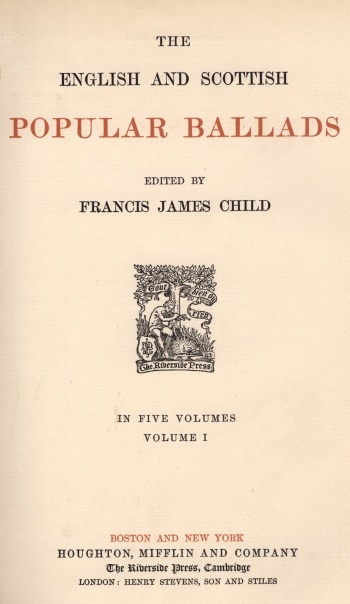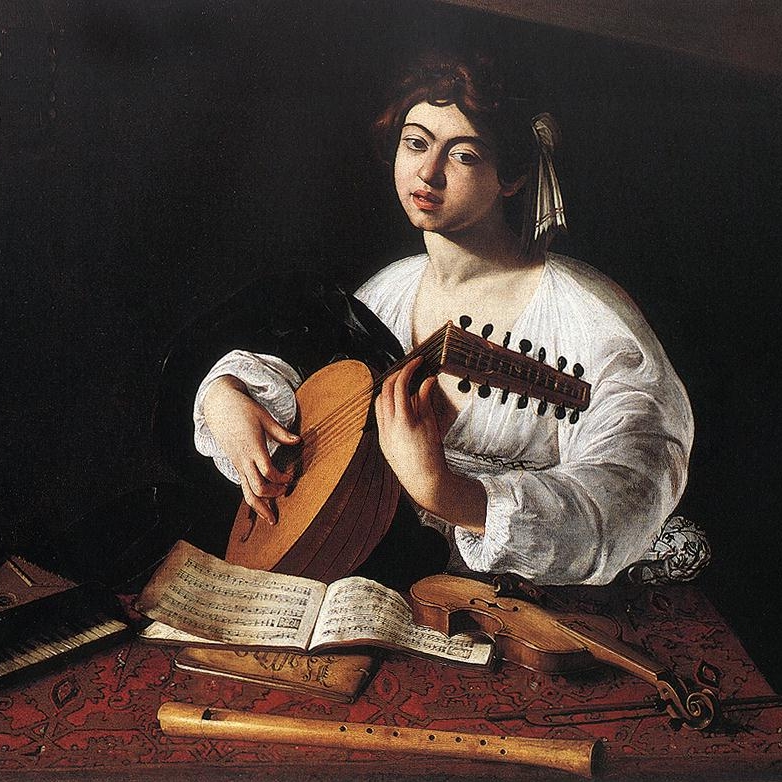In order to preserve the historical integrity of the ballads in this section they are presented in their original dialects, which span a broad range. These ballads have been passed down through the centuries from many different regions of Great Britain before appearing in print. A synopsis of each ballad, in modern American English, is provided to aid in ease of comprehension of the dialects.
Woud ye hear of William Wallace,
An sek him as he goes,
Into the lan of Lanark,
Amang his mortel faes?
There was fyften English sogers
Unto his ladi cam,
Said, Gie us William Wallace,
That we may have him slain.
Woud ye gie William Willace,
That we may have him slain,
And ye's be wedded to a lord,
The best in Christendeem.
'This verra nicht at seven,
Brave Wallace will come in,
And he'll come to my chamber-door,
Without or dread or din.'
The fyften English sogers
Around the house did wait,
And four brave southron foragers
Stood hie upon the gait.
That verra nicht at seven
Brave Wallace he came in,
And he came to his ladie's bouir,
Withouten dread or din.
When she beheld him Wallace,
She star'd him in the face;
"Ohon, alas!' said that ladie,
'This is a woful case.
'For I this nicht have sold you,
This nicht you must be taen,
And I'm to be wedded to a lord,
The best in Christendeem.'
'Do you repent,' said Wallace,
'The ill you've dane to me?'
'Ay, that I do,' said that ladie,
'And will do till I die.'
'Ay, that I do,' said that ladie,
'And will do ever still,
And for the ill I've dane to you,
Let me burn upon a hill.'
'Now God forfend,' says brave Wallace,
'I shoud be so unkind;
Whatever I am to Scotland's faes,
I'm aye a woman's friend.
'Will ye gie me your gown, your gown,
Your gown but and your kirtle,
Your petticoat of bonny brown,
And belt about my middle?
'I'll take a pitcher in ilka hand,
And do me to the well;
They'll think I'm one of your maidens,
Or think it is yoursell.'
She has gien him her gown, her gown,
Her petticoat and kirtle,
Her broadest belt, wi silver clasp,
To bind about his middle.
He's taen a pitcher in ilka hand,
And dane him to the well;
They thought him one of her maidens,
They kend it was nae hersell.
Said one of the southron foragers,
See ye yon lusty dame?
I woud nae gie muckle to thee, neebor,
To bring her back agen.
Then all the southrons followd him,
And sure they were but four;
But he has drawn his trusty brand,
And slew them pair by pair.
He threw the pitchers frae his hands,
And to the hills fled he,
Until he cam to a fair may,
Was washin on yon lea.
'What news, what news, ye weel-far'd may?
What news hae ye to gie?'
'Ill news, ill news,' the fair may said,
'Ill News I hae to thee.
'There is fyften English sogers
Into that thatched inn,
Seeking Sir William Wallace;
I fear that he is slain.'
'Have ye any money in your pocket?
Pray lend it unto me,
And when I come this way again,
Repaid ye weel shall be.'
She's put her hand in her pocket,
And taen out shillings three;
He turnd him right and round about,
And thankd the weel-far'd may.
He had not gone a long rig length,
A rig length and a span,
Until he met a bold beggar,
As sturdy as coud gang.
'What news, what news, ye bold beggar?
What news hae ye to gie?'
'O heavy news,' the beggar said,
'I hae to tell to thee.
'There is ffyten English sogers,
I heard them in yon inn,
Vowing to kill him Wallace;
I fear the chief is slain.'
'Will ye change apparell wi me, auld man?
Change your apparell for mine?
And when I come this way again,
Ye'll be my ain poor man.'
When he got on the beggar's coat,
The pike-staff in his hand,
He's dane him down to yon tavern,
Where they were drinking wine.
'What news, what news, ye staff-beggar?
What news hae ye to gie?'
'I hae nae news, I heard nae news,
As few I'll hae frae thee.'
'I think your coat is ragged, auld man;
But woud you wages win,
And tell where William Wallace is,
We'll lay gold in your hand.'
'Tel down, tell down, your good red gold,
Upon the table-head,
And ye sall William Wallace see,
Wi the down-come of Robin Hood.'
They had nae tauld the money down,
And laid it on his knee,
When candles, lamps and candlesticks,
He on the floor gard flee.
And he has drawn his trusty brand,
And slew them one by one,
Then sat down at the table-head,
And called for some wine.
The goodwife she ran but, ran but,
The goodman he ran ben,
The verra bairns about the fire
Were a' like to gang brain.
'Now if there be a Scotsman here,
He'll come and drink wi me;
But if there be an English loun,
It is his time to flee.'
The goodman was an Englishman,
And to the hills he ran;
The goodwife was a Scots woman,
And she came to his hand.
The ballad Gude Wallace appears in Volume III of The English and Scottish Popular Ballads, edited by Francis James Child. These volumes are in the public domain.

The Child Ballads are 305 traditional ballads from England and Scotland, and their American variants, anthologized by Francis James Child during the second half of the 19th century. ... Read more at Wikipedia.

Ballads were particularly characteristic of the popular poetry and song of the British Isles from the later medieval period until the 19th century. ... Read more at Wikipedia.